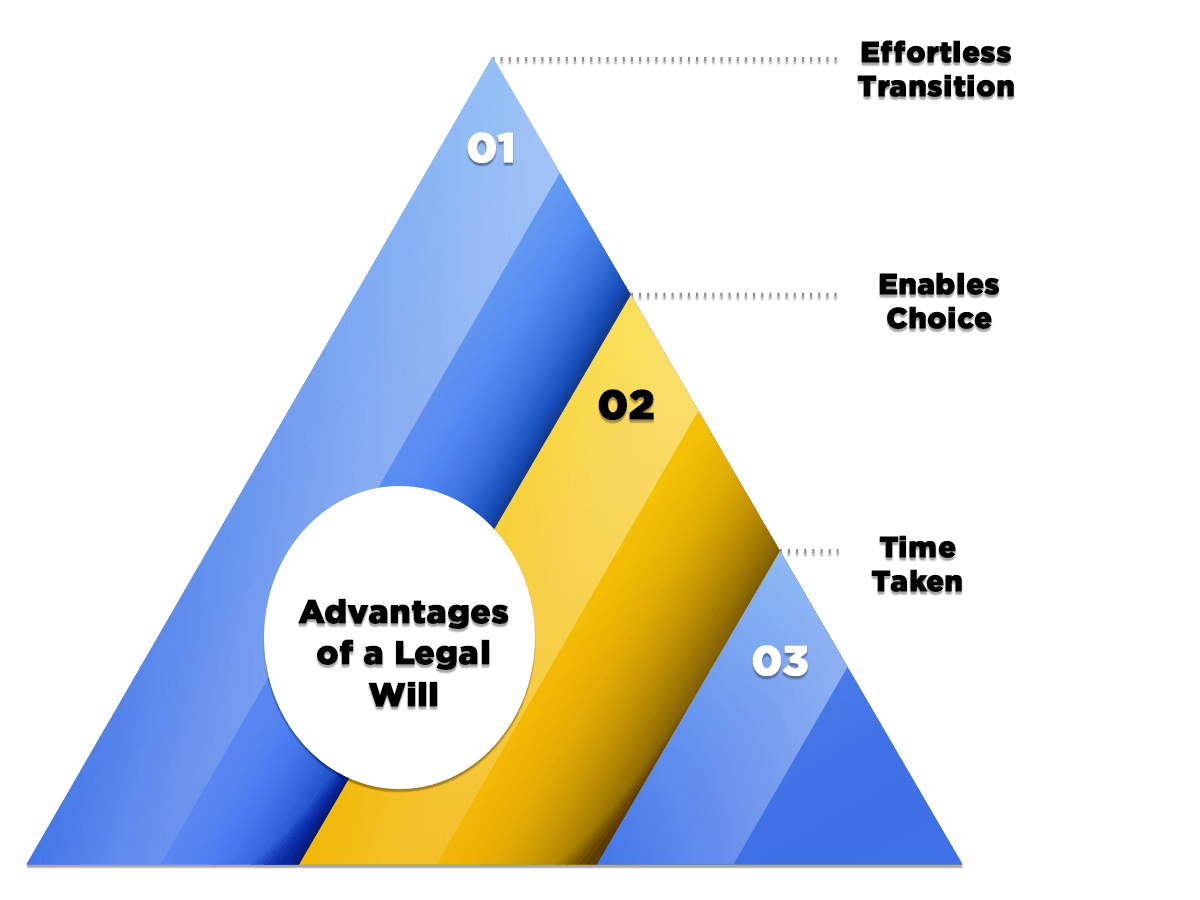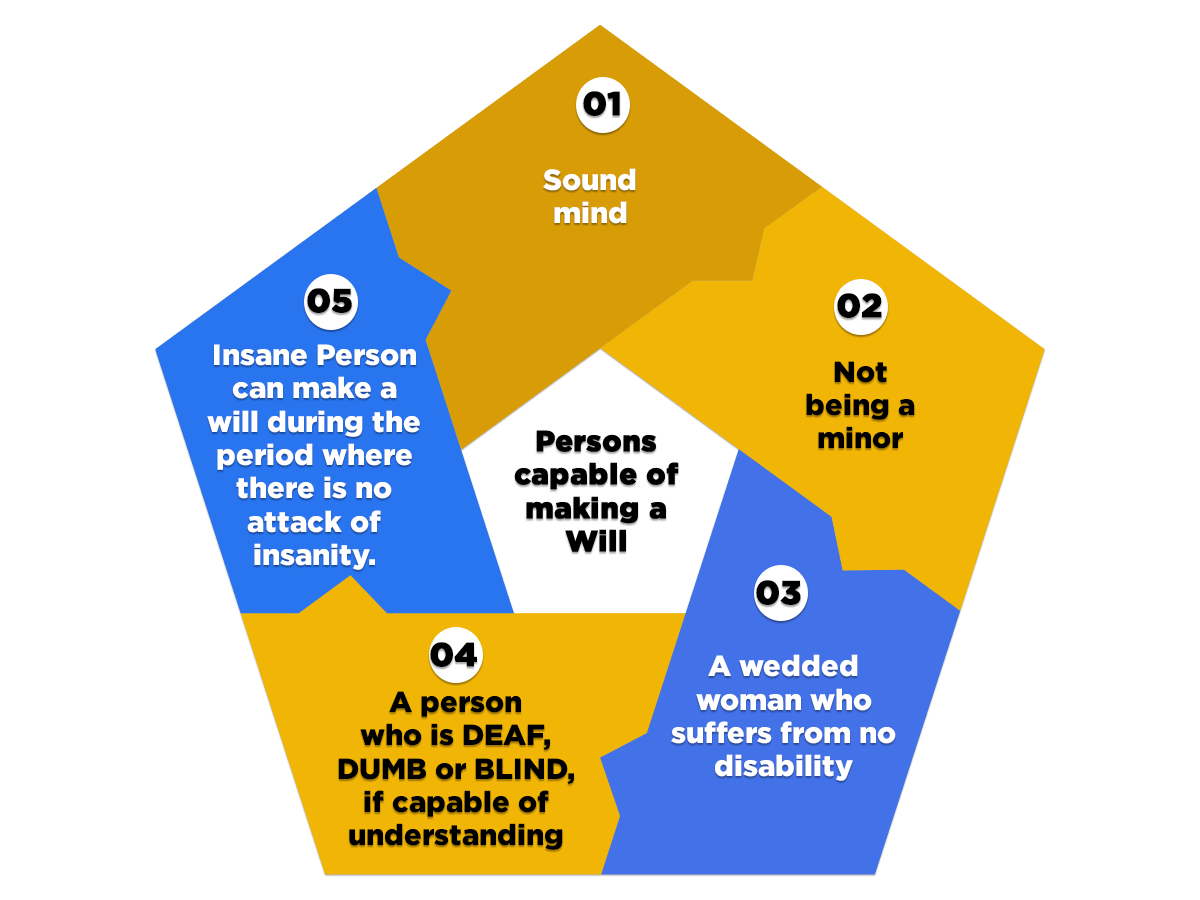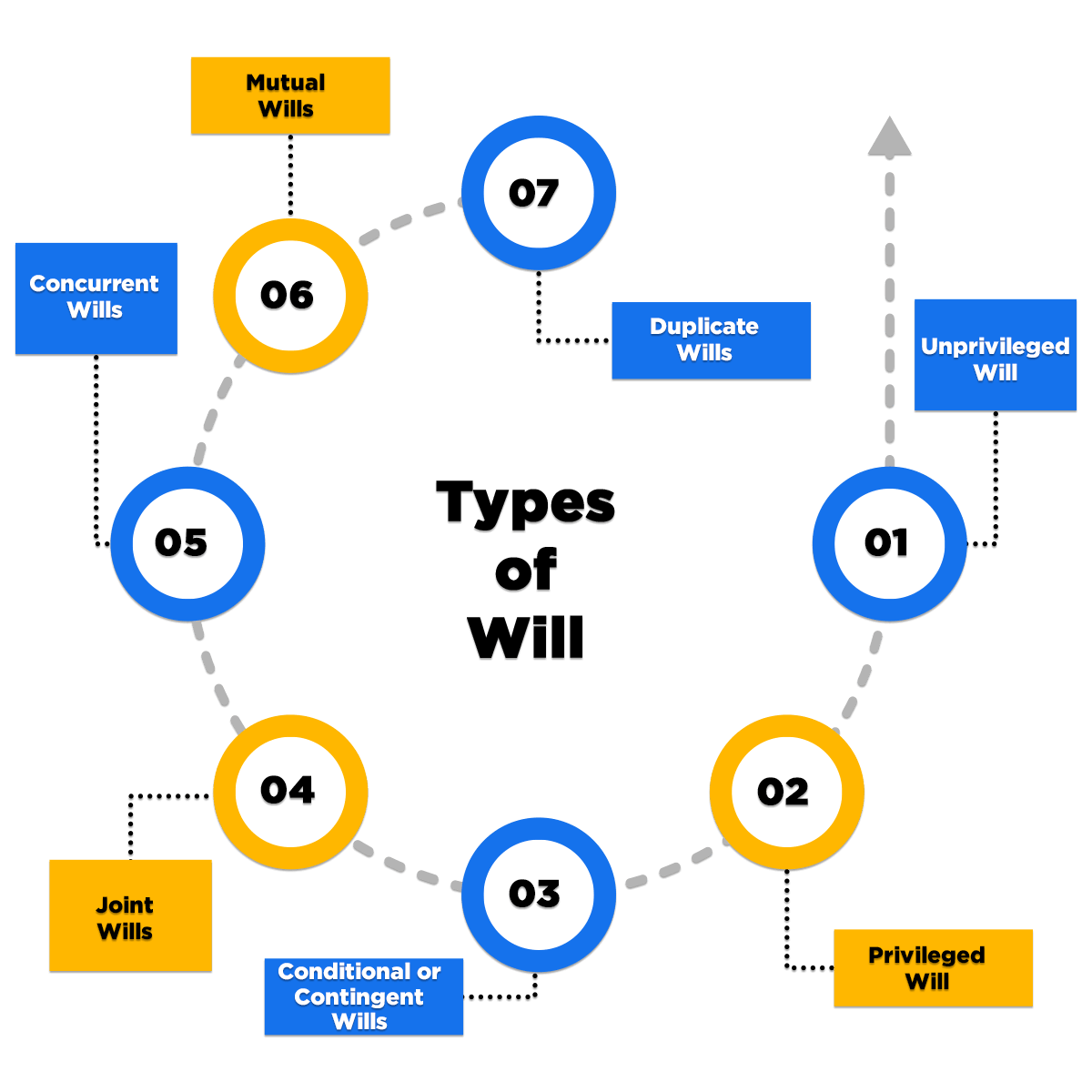What is a Legal Will?
A will is a legal document by which a person expresses their wishes as to distribute his property on their demise and names one or more persons, the executor, to manage the estate until its ultimate distribution.
What is a will in Indian law?
As per the Indian Succession Act 1925, a Will is a legal declaration of the intent of the testator, regarding his property which he wishes to be carried into effect after his death.
Is Unregistered will valid?
The principal characteristic of a WILL to be lawfully valid is 2 persons attesting witness to the will when the testator signs in their presence. If only one person signs as a witness then it is not a valid Will. Will need not be registered. An unregistered will is valid if it is signed by two attesting witnesses.
Who can be a witness to a will?
Most states necessitate that witnesses to the will should not stand to inherit under the terms of the will. A beneficiary’s spouse may also stand to be disqualified from being a witness. If a beneficiary to the will serves as a witness, the will to that person could be declared void by a court.
Advantages of a Making will

- Effortless Transition: A will bring in order with regard to how your assets will be handled after your death.
- Enables Choice: In case of an intestate death (without a will), your assets would devolve as per the laws of inheritance, which may not be as per your wishes. A will is where you can state exactly how you want your assets to devolve.
- Time taken: Approx. 3 to 4 working days will be required to deliver the will after the information is received. In case of modification it approx. 2 days.
Persons capable of making the Will

- Sound mind.
- Not being a minor.
- A wedded woman who suffers from no disability.
- A person who is DEAF, DUMB or BLIND is also eligible to make a will if he is capable of understanding or knowledge as to what by it.
- A person who is insane can make a will during the period where there is no attack of insanity.
6 Elements of a Will
The six essential elements of a valid will are:
- As a writer of the will must be at least 18 years of age or in other words an adult.
- You must have the testamentary capacity and must state in writing that you are of sound mind and are writing the will of your own accord.
- A statement declaring the document as your will must be included.
- An executor should be appointed.
- The document must cover at least 1 provision that name a guardian for a minor child and/or at least one provision providing for the allocation of your estate.
- If the will is not written in your handwriting (i.e., typed), you must sign the will and it must be attested to by two witnesses who are not beneficiaries and who saw the will signed by you.
Types of Will

Different type of legal will are as follows:
- Unprivileged Will.
- Privileged Will.
- Conditional or Contingent Wills.
- Joint Wills.
- Concurrent Wills.
- Mutual Wills.
- Duplicate Wills etc.
Frequently Asked Questions
The term “Probate of Will” means a copy of Will that is certified under the official seal of a Court of competent jurisdiction.
The provisions of the Indian Succession Act 1925, acts as the governing law for a Legal Will.
Yes, it is mandatory to obtain probate in all the states of India.
The percentage of the fee charged for the probate will depend on the discretion of the court.
The main advantage of a Probate of Will is that it offers the court a chance to handle a disputed will.
There are various documents required for Probate of a Will. For more details, reach out to swarit advisors or read the service page content given above.
Yes, it is significant to advertise a will after registering probate.
The term “Proof of death” means the submission of the original death certificate.
If an individual gets killed in action while serving in the armed forces, then the official notification might be given in the proof of death of the testator.
The term Will means a written document that affirms the manner in which an individual will distribute the property after his/ her death.
The term “executor” means a person who is responsible and accountable for the execution of a legal will, i.e., he/she is responsible for distributing the wealth and property of the deceased person as per his/ her wishes.
No, it is not mandatory to provide the name of the executor in the will.
Yes, every will is revocable till the life of the testator.
After the death of the testator, the will made cannot be revoked.
Yes, a testator can give all his/ her property in a will.
No, a Muslim person can give only 1/3rd of the property in a Will.
The format of a legal will under Muslim Law is immaterial. That means the same can be either written or oral.
The different types of Wills are Unprivileged Will, Privileged Will, Conditional or Contingent Wills, Joint Wills, Concurrent Wills, Mutual Wills, and Duplicate Wills.
A person who is of sound mind, capable to understanding, and is not a minor can make a Legal Will.
Yes, a Deaf can make a Legal Will, if he/ she is capable of understanding.
Yes, a Dumb can make a Legal Will, if he/ she is capable of understanding.
Yes, a Blind can make a Legal Will, if he/ she is capable of understanding.


